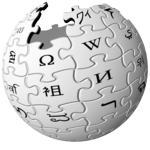Is Wikipedia ripe for PR?


I have to admit, Shaw's suggestion is a good one -- Wikipedia is fast becoming a widely-respected source of information. It's even quoted in news stories about technology, and is updated in real time to reflect world events. Whatever quibbles some may have about the nature of community editing, Wikipedia is here to stay and it will only become more influential as time goes on -- not less. Companies that want to tell their story (ie, any company that wants to stay in business...) would do well to make sure their voice is heard on Wikipedia entries about their products, as well as more generic entries about their products as well.
However, I also have to admit a bit of repulsion at the thought that every new media is immediately examined for its suitability for pushing advertising at the general populace. Advertising (spam) has seriously hindered the usefulness of e-mail, threatened to make Web-browsing much less fun due to pop-ups and other noxious forms of online advertising (thank goodness Linux users are still more or less free of adware and spyware), and most people who run blogs have discovered that unscrupulous advertisers are keen on seeding their comments with spam as well -- the list goes on and on. Advertising has been glomming on to new technologies almost as quickly as they can be invented, probably as far back as the first printing press, so it's little surprise that Wikimedia would be an attractive target for marketers.
What I like about Wikipedia, however, is the fact that it's not a form of one-way communication. If Company A decides to write up an entry that's self-serving and unrealistic about their product or inserts self-serving content into other Wikipedia entries, Wikipedia editors (pretty much any interested Wikipedia reader) can deal with it by voting for the content to be deleted, or rewrite it from a neutral point of view. Unlike other media, no one gets the last word on the Wikipedia.
As the Wikipedia page on advertising also points out, companies may even contribute useful information in attempts at self-promotion. If the PR folks can leave behind the marketing-speak and contribute just the facts about their company and/or products, it might actually be a benefit to Wikipedia instead of just another form of spam.